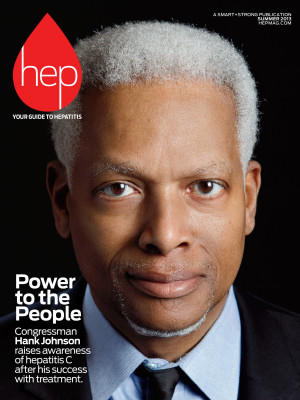Section Branding
Header Content
EXCLUSIVE: Congressman With 25 Years Sobriety Works To Erase Stigma Of Addiction, Hepatitis C
Primary Content
U.S. Rep Henry “Hank” Johnson walked away from all drugs and alcohol more than 25 years ago, he shared for the first time with GPB News in an exclusive interview.
“I don't drink, I don't smoke. I don't do anything that hurts my body,” Johnson said. “And that has not always been the case.”Rep. Hank Johnson of Georgia’s 4th District is acknowledging a history of addiction publicly for the first time but says he has been sober for 25 years. GPB’s Ellen Eldridge spoke to him in an exclusive interview.
The Georgia-based congressman was given 20 years to live when diagnosed at the age of 44 with viral hepatitis. That was 22 years ago, and there was no cure available.
Johnson battled the infection as it damaged his liver and thyroid. In 2010, he told the world about his struggle with hep C and won reelection. Then, he took time to undergo a fourth and final round of treatment with ribavirin and interferon before clearing the virus in time for his 2012 campaign.
His doctors told him recently that the scarring has disappeared, and his liver has regenerated.
Now, patients who have not previously been treated with interferon can clear the virus with a combination of antiviral pills instead of the harsh interferon injections.
While Johnson said he supports those who need treatment for the disease of addiction, he was able to cease dealing with intoxicants of his own volition. He made a career in criminal defense law for 27 years including 12 years as a magistrate judge and five years as a county commissioner before joining Congress in 2006.
He continues to fight the stigma associated with viral hepatitis and recently told Hep magazine that “anytime I get called upon to speak as someone who cleared the virus, I do so.” He said he hoped the article would highlight the rise in hep C cases that parallels the opioid crisis.
“Injection-drug users shouldn’t be stigmatized,” Johnson told Hep. “We need to let them know that we accept that this is a public health issue and that using drugs should not be a barrier to getting tested.”
Johnson told GPB News he encourages people to connect with groups such as Alcoholics Anonymous, Narcotics Anonymous and others so they can “stay on the right path.”
Part of the inspiration to live as healthy a life as possible came from watching his father struggle with alcoholism and participating in his attempts to recover, which he never did, Johnson said.
“He drank so much until it impacted his brain or his brain function, and I think he actually lost the ability to exercise self-control,” Johnson said.
Johnson’s father, who was once the highest ranking African American with the Federal Bureau of Prisons, died in a nursing home.
“What actually enabled him to live as long as he did was the fact that he did not have access to alcohol,” Johnson said.
Eliminating the stigma associated with those in long-term recovery and those actively struggling with addiction is crucial, he said.
“I have a long history of dealing with people who are in recovery and I understand their faith, their struggle,” Johnson said. “And I understand the need for them to have second, third and fourth chances; however long it takes. You know, I mean, we can't give up on people.”
Johnson said he’s made it a point to employ ex-offenders.
He is also fighting in Congress to make sure people with criminal records can access loans for small businesses. Last week, he signed on to cosponsor H.R.6894, which seeks to amend the Small Business Act to ensure that applicants with a criminal record are eligible for certain loans, and for other purposes.
“You can’t punish people forever for something they’ve done,” Johnson said.
He described a man who served a lengthy prison sentence and returned to society to start a trucking company that now employs 10 people. The man is on probation and isn’t currently eligible for a Paycheck Protection Program loan associated with the CARES Act that provides emergency assistance and health care response for individuals, families, and businesses affected by the 2020 coronavirus pandemic.
“That's not fair. It's not right. And it's also counterproductive,” Johnson said.
Obstacles like this can lead to recidivism, he said, and Johnson said he wants people in the addiction recovery community to know he’s advocating for them.
“Know that you have someone in Congress who believes in you and who will fight for you,” Johnson said.



